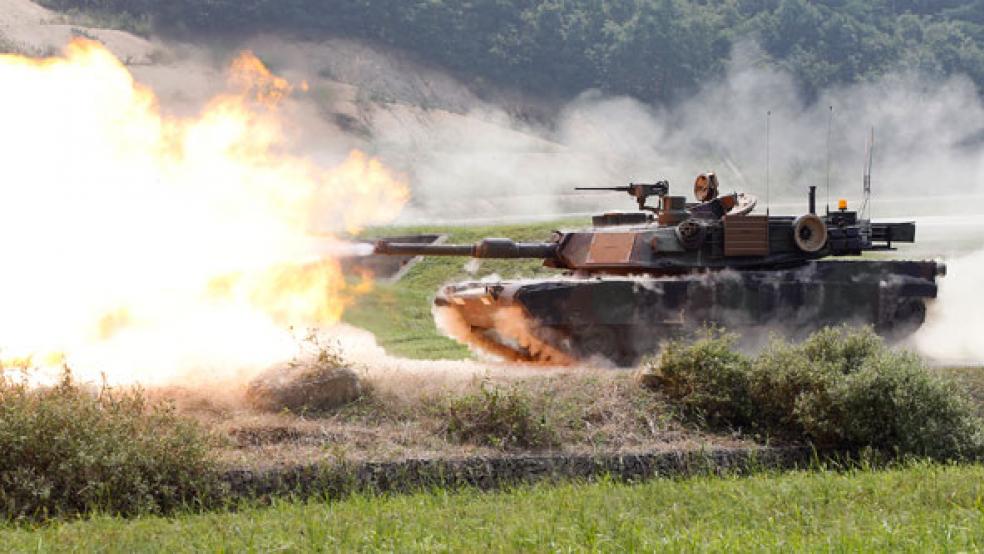U.S. weapon sales to foreign nations this fiscal year are on track to equal or blow past the $68.6 billion record set in 2012.
In a research note published on Wednesday, Roman Schweizer, a managing director and defense analyst at Cowen Washington Research Group, said arms sales needing congressional already total $59 billion, and that does not include “the big hardware purchases announced during President Trump's visit to Saudi Arabia.”
Related: The Troubled F-35 Nails Its Paris Debut, Closes In on a $37 Billion Sales Deal
What is driving those sales? Among the reasons Schweizer cited are:
* NATO. Uncertain about President Trump and worried about Russian President Vladimir Putin, NATO has jacked up spending by 4.3 percent or $12 billion. “NATO has increased spending by $46B over the last three years, and 25 of 29 countries plan to increase spending this year,” the Cowen advisory said. “We see the European security dynamic as being fundamentally changed post-Crimea/Ukraine/cyber and suspect spending would have gradually increased under any U.S. administration.”
* China. Asia-Pacific countries are buying weapons systems “to counter China.” As The Fiscal Times reported this week, in the face of a highly threatening situation on the Korean Peninsula, China is ramping up its naval might. And conflicts over island-building in the South China Sea add to volatility in the region.
* Iran. Israel and members of the Gulf Cooperation Council – including Saudi Arabia, the United Arab Emirates, Bahrain, Kuwait, Oman and Qatar – are buying weapons “to counter Iran.” However, the internecine faceoff between the GCC and Qatar has put approval of military sales to those nations on hold. But Schweizer said, “We see this hiccup as temporary” and suggested that the reported $110 billion in arm sales to Saudi Arabia will be spread out over fiscal 2017 and 2018.
* ISIS. To continue the fight against ISIS, NATO and GCC countries will need to keep buying munitions.
In an email to The Fiscal Times, Schweizer said, “It’s tough to say what the final number will be. There are a bunch of deals in the pipeline that could be announced over the next three months to the end of the fiscal year.”
Related: The Army Is Hiring: Pentagon Plans to Add Thousands of Ground Troops
He said the big question for investors over the long term is the “scope” of President Trump’s defense spending plans.
Defense stocks have been outpacing the overall market, especially since tensions with North Korea are on the rise, but they haven’t been soaring. “I think budget uncertainty about the level of growth in DoD spending has been issue,” Schweizer said.





